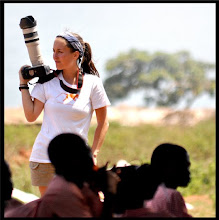|
|
||||
|
Pablo's
group became 46 individuals today when the Fossey Fund’s Karisoke
Research Center trackers arrived at the group and noticed that Mukecuru,
an older female estimated to be between 26 and 32 years of age, had
given birth. The Karisoke field staff have suspected for several months
now that Mukecuru was expecting. Her belly has been exceptionally rotund
and she has been observed moving slowly, appearing lethargic and
uncomfortable. At her age, this will be one of her last offspring to be
born. As she lost her two previous infants in 2007 and 2009, the field
staff is hoping this new baby will survive. According to Karisoke’s copulation records, Mukecuru was copulating primarily with Gicurasi, the beta-male of Pablo's group, nine months ago. The field staff reports that Mukecuru spends much of her time with this silverback. “It will be interesting to see how both Gicurasi and [dominant silverback] Cantsbee react to the infant” says Gorilla Program Manager Veronica Vecellio. It will be at least six months before the Karisoke researchers are able to collect viable DNA samples to determine paternity for this youngster, though. At least five fecal samples will be collected and shipped to the Max Planck Institute in Germany when the time comes. It is possible that Mukecuru gave birth yesterday, because the team was not able to reach Pablo's group that day due to rain, flood waters and rising rivers. The Karisoke trackers reported that the baby appeared healthy this morning, but because of the inclement weather at this time of year it’s a difficult time for a youngster to be born. Anti-poaching NewsIn the second mixed patrol of 2012 conducted by the Congolese park authority (ICCN) and Karisoke trackers, 105 snares were found in the last six days. This patrol covered the trans-border area on the northern side of Mount Visoke, called Kaniampereri. It has been some time since this area was combed for snares and other illegal activities, but this alarmingly high number is cause for concern for the gorillas that range along the border between the Democratic Republic of Congo and Rwanda.Jessica Burbridge, Field Communications Officer All images © Dian Fossey Gorilla Fund International To read more of the Fossey Fund's blog, please click here. | ||||

